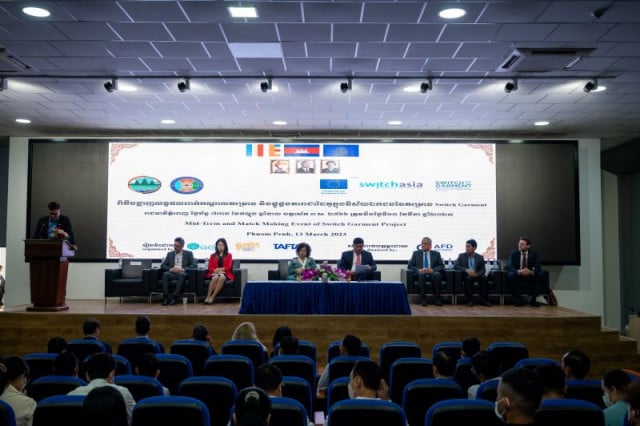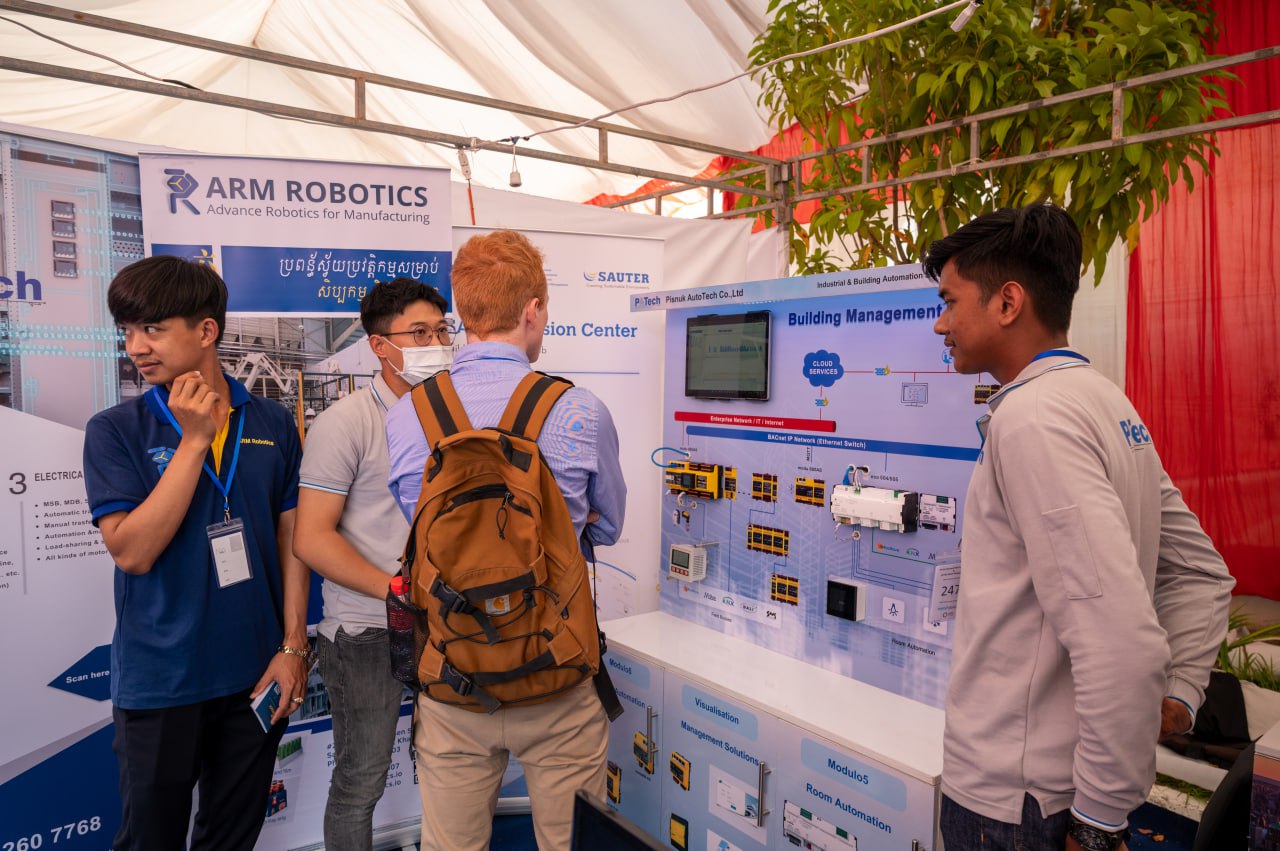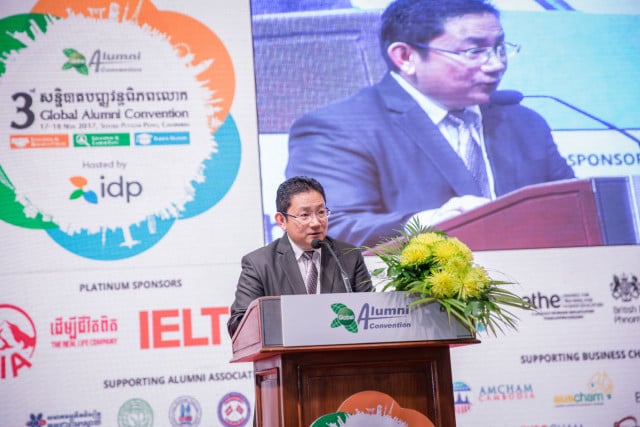Two Years On, EU Switch Garment Project Presents its Achievements

- By Meng Seavmey
- March 15, 2023 9:50 AM
PHNOM PENH – Energy-saving and CO2-reducing products were showcased at an exhibition aimed at improving the sustainability of garment factories in Cambodia while enhancing the competitiveness of the sector.
The exhibition was organized on March 13 by the Global Green Growth Institute (GGGI), the Group for the Environment, Renewable Energy and Solidarity (GERES), and the Sustainability Committee of Textile, Apparel, Footwear and Travel Goods Association in Cambodia (TAFTAC)—formerly known as GMAC.
It aimed at presenting the mid-term achievements of the 4-year Switch Garment project, an initiative launched and supported by the European Union whose goal is to promote sustainable energy practices in Cambodia’s garment sector.
The exhibition offered several private companies 20 booths to present their solutions for improving energy efficiency in the sector.
While some products focused on improved devices to better monitor and control factories’ energy consumption, others put the spotlight on replacing outdated equipment with newer and more energy-efficient ones, such as new cooling or lighting systems. Solar panel solutions, especially rooftop photovoltaic systems, were also showcased.
Even though all these products are technically different, they all share a common ground: Helping garment factories reduce carbon and greenhouse gas emissions, aligning with Cambodia’s policy to reach carbon neutrality by 2050.
Minister of Environment Say Sam Al said the Switch Garment Project will help Cambodia achieve its national targets for climate mitigation.
The project is aligned with the ASEAN Green Deal, the country’s long-term strategy for carbon neutrality (LTS4CN), and the country’s Nationally Determined Contributions (NDCs) for going net-zero.
Carmen Moreno, ambassador of the European Union to Cambodia said the EU supports garment factories to adopt sustainable energy practices and facilitates investment in clean technologies, enhancing the country’s competitiveness in the sector.
“The event also brings together garment industry actors and energy service providers so that they can learn about their respective needs and services and provides a platform to match demand and suppliers,” she said.
Choon Yikthong, TAFTAC’s chair of the Sustainability Committee, said the garment sector has played a significant role in Cambodia’s economic development, particularly by employing more than 800,000 people nationwide.
 The exhibition offered several private companies 20 booths to present their solutions for improving energy efficiency in the sector. Photo provided
The exhibition offered several private companies 20 booths to present their solutions for improving energy efficiency in the sector. Photo provided
“The vision of the association in jointly implementing this project is to help members reduce production costs, improve the environmental compliance in the industrial sector, reduce the carbon footprint as requested by buyers, increase the production confidence, and strengthen the production quality and occupational safety in the factory,” he stressed.
Shomi Kim, GGGI’s country representative, said awareness leads to adjustment, and the Switch Garment Project has contributed to increasing the awareness of the sector for taking measures toward better energy efficiency.
“The Switch Garment project has demonstrated concrete examples and guidance on how factories can examine their energy consumption profile and provide them with an eye-opening opportunity to realize energy saving potentials from implementing energy efficiency and renewable energy measures,” she said.
Funded by the EU through the EU SWITCH-Asia Programme, the Switch Garment is a four-year project jointly implemented by GGGI, TAFTAC and GERES. Started in 2020, it will end in 2024.
The project aims to increase the country’s competitiveness in the garment sector compared to its regional neighbors, as well as lower the industry’s environmental impact. The project has also introduced sustainable practices and investments in clean energy technologies.















